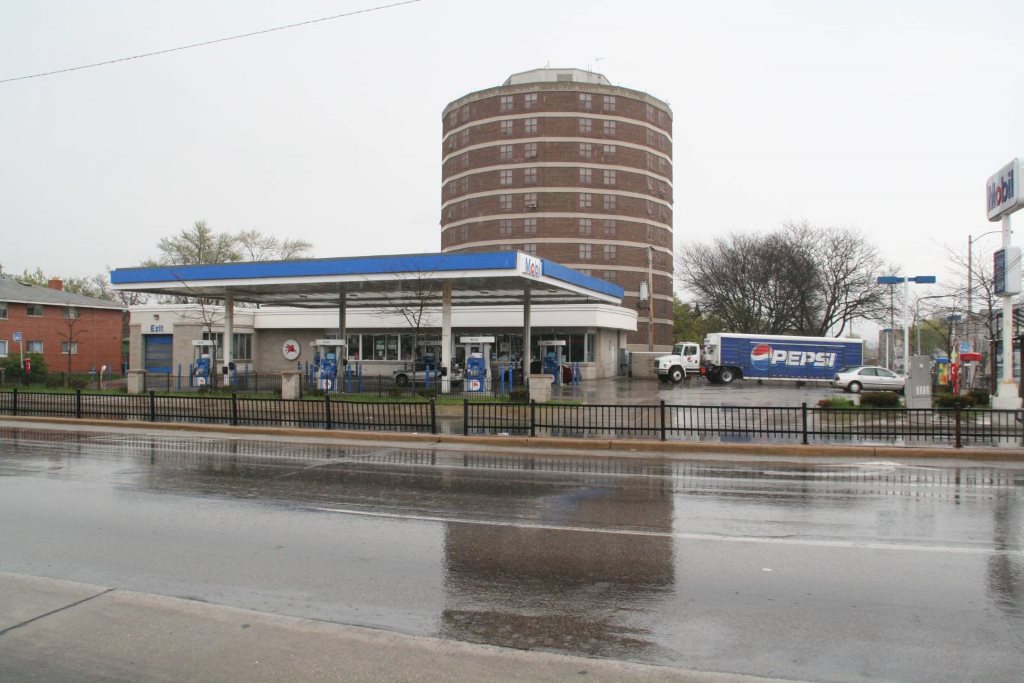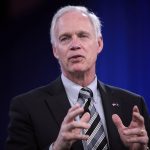Gas-Tax Holiday Isn’t Likely in Wisconsin
Biden proposes federal gas tax holiday. But a pause on state's gas tax is unlikely.
Since President Joe Biden has asked Congress to suspend the 18-cent per gallon federal gas tax for three months to give drivers a small break from record high prices, it’s time for a question-and-answer update on Wisconsin’s gas tax.
Q. If the federal gas tax is 18-cents per gallon, what is Wisconsin’s gas tax?
Wisconsin’s gas tax has been 30.9 cents per gallon since 2006, when the state stopped adjusting it annually for inflation. Democratic Gov. Tony Evers proposed an 8-cent per gallon increase in his first budget in 2019 and said that would be offset by repealing the minimum markup law that requires prices increase by 9.1%. Republicans killed that plan.
No. That would require that the Democratic governor and Republican legislative leaders agree on suspending the gas tax, and they have not been able to agree on any major priorities for years. The Legislature is not scheduled to return to the Capitol until January, after the November election for governor. Legislators are busy running for re-election or for higher office, or have retired.
Q. I understand that there is almost no chance of a three-month suspension of the state’s 30.9-cent gas tax. Humor me; how much would it save Wisconsin drivers?
The gas tax is estimated to bring in $1.046 billion in the budget year that ends on July 31, according to the Legislative Fiscal Bureau (LFB). So, a three-month suspension of the state gas tax could potentially save drivers at least $261 million, depending on whether the suspension occurred during heavy or light driving months.
That is only a division exercise, however. LFB does not have an official estimate of revenue loss from a three-month suspension.
Two other reasons why there won’t be a gas-tax holiday in Wisconsin: State government depends on the gas tax for more than half of all transportation revenues. And, less driving caused by the COVID-19 pandemic resulted in a slight one-year drop in gas-tax revenues, threatening future spending.
Illinois has a 39.2-cent gas tax, but that is scheduled to go up to 45 cents within a year; Iowa, 31-cents per gallon; Michigan, 27.2-cents per gallon, and Minnesota, 28.5-cents per gallon.
State gas taxes average 29-cents per gallon nationally. The highest gas taxes are in Pennsylvania, 57.6-cents per gallon, and California, 51.1-cents per gallon. The lowest state gas taxes are in Alaska, 8.9-cents per gallon, and Hawaii, 16-cents per gallon.
Q. Evers last week issued an executive order prohibiting gas- and diesel-price “gouging” by refiners, wholesalers or retailers until Dec. 31. Will it do anything?
Evers said it would: “This emergency order will help prevent bad actors from taking advantage of Wisconsin drivers as they fill up the tank to get to work, school, supplies and resources for their businesses, or get their product to market.”
Republican candidates for governor disagreed.
“Tony Evers’ disingenuous executive order is nothing more than an election-year stunt, attempting to deflect from his own failures, which include proposing a near 40% increase in the gas tax,” said Rebecca Kleefisch, a former lieutenant governor running against Evers.
Republican candidate Kevin Nicholson said the 9.1% minimum markup law should be repealed: “Estimates from earlier this year (when gas was just $4/gallon, on average) show that the minimum markup added upwards of $0.32 per gallon to the cost….This needs to stop.”
You be the judge. Owners of hybrid electric vehicles are charged an additional $75 per year to register those vehicles; owners of fully electric vehicles, $100 more. Those fees are added to the $85 state registration fee and local “wheel” taxes. Hybrid electric vehicles are estimated to make up about 2.4% of vehicles statewide; fully electric vehicles, 0.5%.
Last year, the hybrid fee netted state government $6.5 million; the electric-only fee, $703,200. Those revenues could go to $7.4 million and over $1 million this year, respectively. But state Transportation Fund spending this year will be about $2.3 billion.
Steven Walters started covering state government in 1988. Contact him at stevenscotwalters@gmail.com
The State of Politics
-
A Wisconsin Political Trivia Quiz
 Dec 15th, 2025 by Steven Walters
Dec 15th, 2025 by Steven Walters
-
The Fight Over Wisconsin’s House Districts
 Dec 8th, 2025 by Steven Walters
Dec 8th, 2025 by Steven Walters
-
The Battle Over On-Line Betting
 Nov 24th, 2025 by Steven Walters
Nov 24th, 2025 by Steven Walters























But…Steve needs to mention that the state just got an additional $283 million in Federal funds from the infrastructure bill for this fiscal year, so there won’t be a drop in availability of highway funds if there was a 3-month suspension in the gas tax. Maybe it would limit how much more of the backlog can be cleared, but it won’t cause a hole in the budget.
Yes, it’s a gimmick. But it also brings down prices during the key Summer driving/tourist season, and just ratcheting up the volume against oil companies magically has allowed oil prices to drop by $15 in the last 2 weeks.
I’d do it if I was Evers. The DC infrastructure bill gives the cover to do that.
I hope that the price of oil increases to $200 per barrel and that gasoline increases to $12 per gallon…
If this is what it takes to get rid of all the 800 horsepower, 10 mile per gallon vehicles with no mufflers and worthless, reckless drivers, then I hope that gasoline increases to $15 per gallon.
I do wonder tho’, why we should give a gas tax holiday. When I worked (now retired) I lived 4 miles from work, but could have taken the bus if money was a pressing issue.
Why give Amazon, et. al., a break when the gas taxes pay for repairs, and they are the ones ripping up the roads?
Since Amazon, et.al., pay no corporate taxes and the owners pay little to no taxes, the onus falls, as always on the average guy.
When the big boys and their Big Boy Companies start paying their fair share, then I might change my mind.
Milton Friedman has a lot to answer for in purgatory/hell, depending on your belief system.